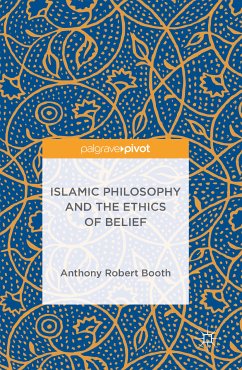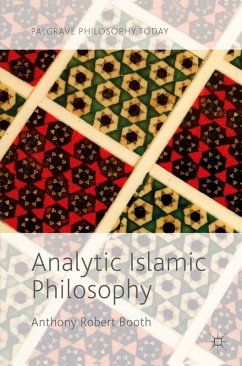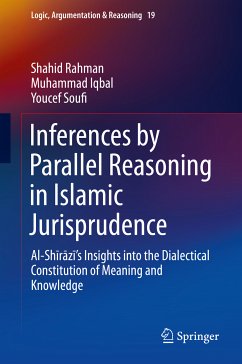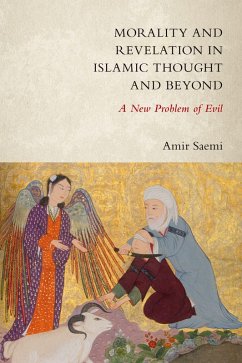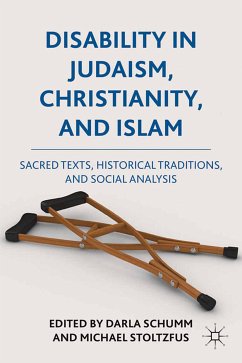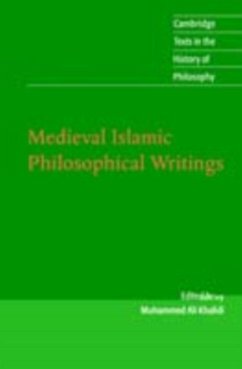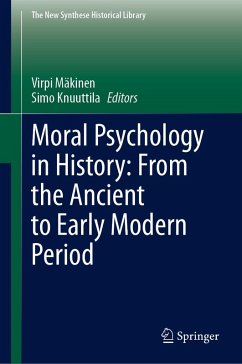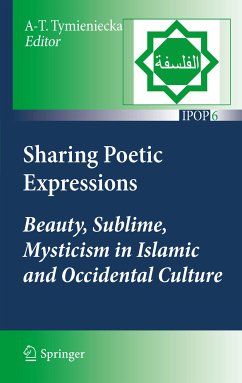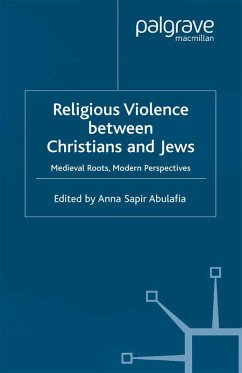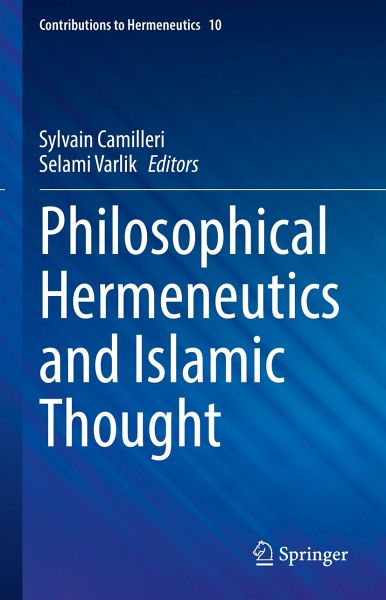
Philosophical Hermeneutics and Islamic Thought (eBook, PDF)
Versandkostenfrei!
Sofort per Download lieferbar
96,95 €
inkl. MwSt.
Weitere Ausgaben:

PAYBACK Punkte
48 °P sammeln!
This book investigates the methodological issues raised by the encounter between Islamic thought and contemporary philosophical hermeneutics. It features essays that examine why and how current Muslim thinkers refer to Continental philosophy. The contributors put the universality of the hermeneutic order to the test with three different approaches. The first looks at exegetical aspects. It addresses contemporary thinkers from the Islamicate world who have engaged critically or not with main representatives or key concepts of philosophical hermeneutics. The second presents an interpretative ana...
This book investigates the methodological issues raised by the encounter between Islamic thought and contemporary philosophical hermeneutics. It features essays that examine why and how current Muslim thinkers refer to Continental philosophy. The contributors put the universality of the hermeneutic order to the test with three different approaches.
The first looks at exegetical aspects. It addresses contemporary thinkers from the Islamicate world who have engaged critically or not with main representatives or key concepts of philosophical hermeneutics. The second presents an interpretative analysis. The essays here present attempts at using philosophical hermeneutics in order to develop new interpretations of canonical or traditional ensembles of texts such as the Qur'an and the Hadith as well as legal, spiritual, and philosophical corpuses from the Islamicate world. The third looks at different political and critical issues.
The clear and sound reference to religion ofIslamic thought makes its entanglement with philosophical hermeneutics a burning challenge for all parties involved. Is it true, as some contend, that philosophical hermeneutics can help interpret Islamic thought anew? This book reveals how the two philosophies are likely to expand each other's horizons and influence each other's conceptual frameworks. It features revised papers from an International Conference.
The first looks at exegetical aspects. It addresses contemporary thinkers from the Islamicate world who have engaged critically or not with main representatives or key concepts of philosophical hermeneutics. The second presents an interpretative analysis. The essays here present attempts at using philosophical hermeneutics in order to develop new interpretations of canonical or traditional ensembles of texts such as the Qur'an and the Hadith as well as legal, spiritual, and philosophical corpuses from the Islamicate world. The third looks at different political and critical issues.
The clear and sound reference to religion ofIslamic thought makes its entanglement with philosophical hermeneutics a burning challenge for all parties involved. Is it true, as some contend, that philosophical hermeneutics can help interpret Islamic thought anew? This book reveals how the two philosophies are likely to expand each other's horizons and influence each other's conceptual frameworks. It features revised papers from an International Conference.
Dieser Download kann aus rechtlichen Gründen nur mit Rechnungsadresse in A, B, BG, CY, CZ, D, DK, EW, E, FIN, F, GR, HR, H, IRL, I, LT, L, LR, M, NL, PL, P, R, S, SLO, SK ausgeliefert werden.



